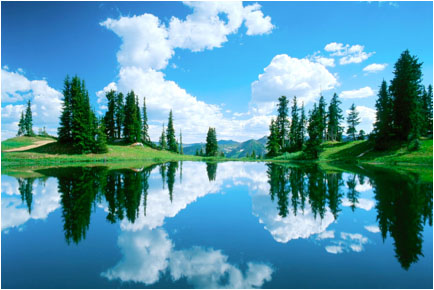Book Review of Facing the Population Challenge: Wisdom of the Elders edited by Marilyn Hempel
In this book, extremely intelligent men and women who have spent their lives working for the betterment of civilization create a profound discussion on humanity’s fate. Their advice is at once profound and concrete. We best listen.
In 21st century America, citizens and leaders rush headlong and with great alacrity toward a doubling of our current 319 million population to 625 million by the end of the century. Growth is God, we are told.
The run-up to that exponential growth goal won’t be pretty—accelerating water shortages, unstable weather, resource depletion, and skyrocketing prices for food, water and energy. Our cities grow more compacted, polluted and gridlocked. Our quality of life rushes desperately off a demographic cliff. We force an unfortunate future upon our children. We obliterate the Natural World in our contaminated and toxic wake. We change our biosphere into a raging, chaotic tempest with no understanding of the outcome.
While Americans and their leaders cannot “see” that far, their children face enormous predicaments discussed by the “Elders” of this book. For the most part, American don’t talk about the population explosion, rather, we assume it will vanish on its own. Reality check: it won’t. It will grow and become unmanageable. It already shows itself catastrophically to the Natural World.

The natural world offers balance and peace of mind. Photo by Adam Jones
The book starts with historical perspective. John Stuart Mill in the 1800s said, “There is room in the world, no doubt, for a great increase in population, supposing the arts of life go on improving, and capital to increase. But even if innocuous, I confess I see very little reason for desiring it. The density of population necessary to enable mankind to obtain all advantages both of cooperation and of social intercourse has been attained.
“A population may be too crowded, though all be amply provided with food and raiment. It is not good for man to be kept at all times in the presence of his species. A world from which solitude is extirpated is a very poor ideal. Solitude, in the sense of being often alone, is essential to any depth of meditation or of character. Nor is there much satisfaction in contemplating the world with nothing left to the spontaneous activity of nature….” Mill speaks of the Natural World and our need for it.
To many Americans, the wilderness is little more than a retreat from the tensions of civilization. To others, it is a testing place—a vanishing frontier where man can rediscover basic values. And to a few, the wilderness is nothing less than an almost holy source of self-renewal. But for every man, woman and child, the ultimate lesson that nature teaches is simply this: man’s fate is inextricably linked to that of the world at large, and to all of the other creatures that live upon it.
Mill said, “If the Earth must lose that great portion of its pleasantness for the mere purpose of enabling it to support a larger, but not a better or happier population, I sincerely hope, for the sake of posterity, that they will be content to be stationary, long before necessity compels them to it. It is scarcely necessary to remark that a stationary condition of capital and population implies no stationary state of human improvement. There would be as much scope as ever for all kinds of mental culture, and moral and social progress; as much room for importing the “Art of Living” and much more likelihood of its being improved, when minds ceased to be engrossed by the “Art of Getting On.”
Mill spoke those words back in the 1800s. Today, humans jam cities in excess of 36 million people—many of them impoverished souls all crammed together in cement wastelands.

We turned the natural world into 36 million-packed human mega-cities that create enormous pollution and loss of connection with the Natural World. Photo by http://www.urbanscape.blogspot.com
Our addiction to growth makes no sense today. We must learn from our elders to make way for a viable and sustainable future—before Mother Nature takes us by the hand, rather brutally and teaches us lessons in sustainable living.
Book: Facing the Population Challenge: Wisdom from the Elders by Marilyn Hempel
Publisher: Blue Planet United, Redlands, CA
ISBN # 9780692212271
Cost: $14.95 paperback
Available at www.Amazon.com
Frosty Wooldridge has bicycled across six continents – from the Arctic to the South Pole – as well as eight times across the USA, coast to coast and border to border. In 2005, he bicycled from the Arctic Circle, Norway to Athens, Greece. In 2012, he bicycled coast to coast across America. He presents “The Coming Population Crisis facing America: what to do about it.” www.frostywooldridge.com. His latest book is: How to Live a Life of Adventure: The Art of Exploring the World, copies at 1-888-280-7715. For a motivational program: How to Live a Life of Adventure: The Art of Exploring the World by Frosty Wooldridge, click: www.HowToLiveALifeOfAdventure.com

